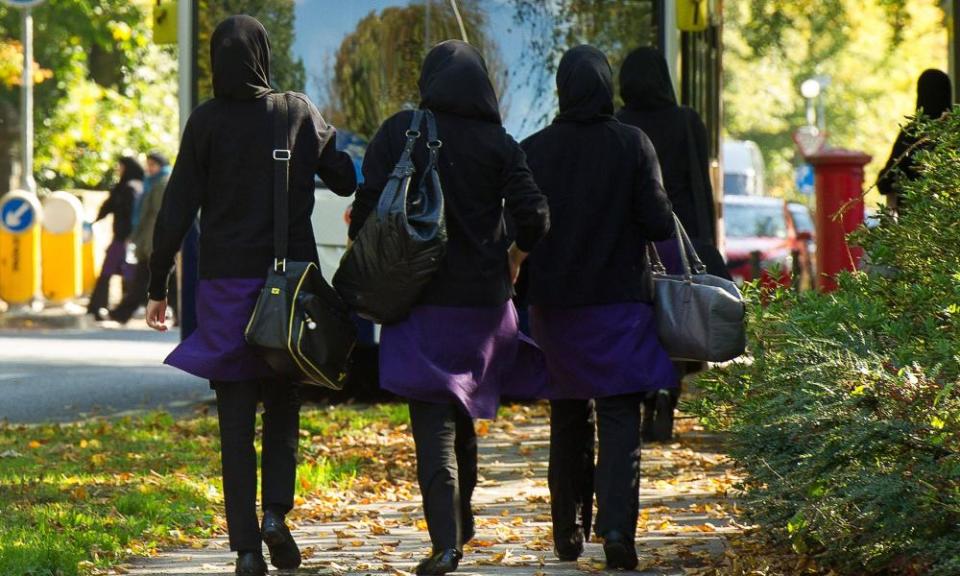'Food-deprived, pulling all-nighters': A-levels during Ramadan

It was a tough exam season for this year’s A-level cohort, who sweated in airless assembly halls during the hottest summer in decades. Arguably, it was even tougher for the students of Tauheedul Islam girls’ high school in Blackburn, who also had Ramadan to contend with.
This year’s month of fasting coincided with the exam period, prompting some girls to stay up late feasting after sundown and others to set their alarms for 2.30am for a very early breakfast. “All our exams were in Ramadan and it was so hot,” said Sara Ziglam, 19, who got As in Arabic and psychology and Bs in biology and chemistry: “We were food-deprived, pulling all-nighters.”
Originally from Libya, she moved from the Gulf to Blackburn to attend Tauheedul, one of the best-performing state schools in the country. Ninety-six per cent of students left this year with at least three A-levels at A* to C grades, with 27% achieving three A*s or As. No wonder there are four applications for each place in year 7.
Like many students, Ziglam thought it unfair that modular exams had been abolished, increasing the pressure to do well in the final exams: “It’s a waste of all your efforts throughout the years. You have peaks and you have troughs – months where you are getting As and months where you are getting Bs. I feel you should assess people more consistently throughout the year to get a better picture of how the student actually is.”
While many A-level students will celebrate in the pub, Tauheedul girls plan to have pizza with their families. Eaman Javed, who is going to Liverpool to study medicine having achieved As in biology, chemistry and maths, said she was looking forward to a day off. “Hopefully I won’t have to cook today because I’ve been cooking and cleaning every single day of the holiday for my brother and sisters while my mum has been working.”
Rated outstanding by inspectors, Tauheedul gave pupils extensive extra coaching, with study sessions after school, at weekends and during the holidays. Add in the Arabic literature and language classes many girls do at the mosque and it is clear social lives were on hold for year 13.
“After school each day I had three hours of Arabic literature and theology, as well as on Saturday,” said Aisha Ilyas Patel, who is going to Liverpool University to study accounting and finance after gaining an A* in psychology, an A in sociology and Bs in maths and economics.
Eighty per cent of Tauheedul girls this year are going to university, with 40 per cent going to Russell Group institutions. Most go to the local University of Central Lancashire in Preston or travelling an hour to Manchester or Liverpool . Others are taking gap years or starting apprenticeships. They are unfazed about studying alongside boys and non-Muslims and reject the idea that Muslim women are expected to stay quiet at home. “I’m supposed to look after my family when I am older and the only way I can do that is to educate myself,” Javed said.
“My faith is a tool that empowers me to go further. The prophet’s wife was a businesswoman, she was very, very wealthy,” said Aasia Majid, 19, who is going to Manchester University to study law with the aim of becoming a barrister. “I don’t align with this idea that my faith is inhibiting me in any way. I am going forward with ambition, striving for what I want.”

 Yahoo News
Yahoo News 